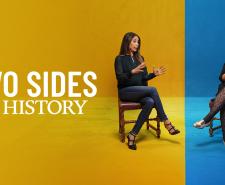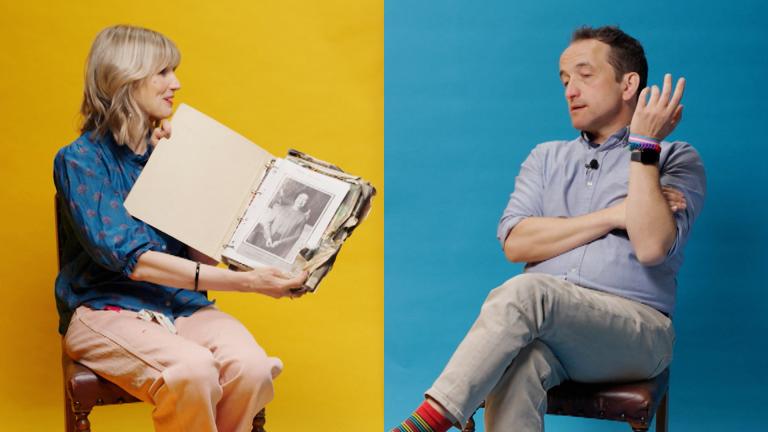
Two Sides of History
Available Now

For centuries, the entire island of Great Britain was under monarchical rule — even when England and Scotland were run as separate countries. In 1707, the two merged to form the state of Great Britain under a single crown.
Since then, the British monarchy has evolved with the times, shedding its previous absolute power. Today, King Charles III’s political role is largely advisory — but is it still time for the UK to leave royalty behind altogether?
Graham Smith, CEO of the pressure group Republic, certainly thinks so. In Sky HISTORY’s Two Sides of History, he debates the matter with historian Dr Tessa Dunlop, who argues for the monarchy’s continued relevance.
Tessa confesses to not being an 'overt campaigner for monarchy'. Instead, she describes herself as 'a monarchist lite'. Indeed, for her, the seemingly anachronistic nature of the monarchy is actually part of its modern appeal.
She cites 'the way in which, arguably, someone so ordinary can be so elevated, dressed up, and omnipresent and yet not omnipotent.' Something about it is, Tessa suggests, 'rather magical'.
However, as Graham implies in response, is someone born a prince or princess really 'so ordinary'? Graham reckons that it would actually be 'more magical' if Brits were able to choose a head of state 'who had lived an ordinary life'.
'For many, there is something so bafflingly wonderful about the preservation of monarchy,' Tessa observes. 'It’s rather nice to have that unique, highly visual aspect in the furniture of our state that’s playing so well at the moment.'
To illustrate this point, she likens the recent funeral of Pope Francis to that of our own Queen Elizabeth II back in September 2022. She hails these funerals as 'two incredibly powerful geopolitical moments,' but Graham doesn’t buy her argument.
He counters: 'There’s a funeral every few decades, it’s not an argument for the monarchy.' He also insists that even high-profile royal events of recent years have generated little real excitement among the public.
'Only 9% were excited by the coronation. 75% said that they weren’t interested in William and Kate’s wedding when that was happening.'
On 29th April 2011, Prince William and Kate Middleton married at London’s Westminster Abbey. Weeks earlier, Jeremy Hunt — the UK’s Culture Secretary at the time — claimed that the event would likely be watched by about 2 billion people worldwide.
Looking back, Graham says that Hunt merely 'dreamt up' this figure. 'Just off the top of his head. Threw it out there, and it got repeated. No evidence whatsoever. Now, people actually crunched the numbers, said that just simply isn’t possible.'
Earlier this year, Republic put together its Ditch the Duchies report. In 2024, William was paid £23million by the Duchy of Cornwall, while Charles got £27million from the Duchy of Lancaster. Republic is calling for these sums to be spent on local communities and public services instead.
According to Graham, the royals 'lie through their teeth about the fact that these are private estates' when they instead 'belong to the state'. Graham complains that Charles and William 'take all the money off them and don’t pay tax.'
Though Tessa agrees that the monarchy is too wealthy, she believes that this issue has to be tackled by 'our elected representatives. It’s not going to come from the King.'
Graham replies that it 'reflects very badly' on Charles if he does not proactively redress the situation, such as by paying inheritance tax. Furthermore, 'William has now refused to say what income tax he’s paying, even though Charles used to.'
Tessa hints that Britain’s image on the world stage would be weaker were it not for the monarchy. Ironically, her conviction in this idea strengthened when Prince Harry and his wife Meghan 'detonated' in their 2021 interview with Oprah Winfrey.
'I remember very distinctly thinking, if we didn’t have the royal family, were we going to get Boris Johnson in a golden carriage?' She posits that there are other, 'more pressing causes' than campaigning to 'abolish something that doesn’t really bother the vast majority of people.'
Graham replies that the monarchy is linked to 'corruption and abuse of power and money' — issues which 'most people are concerned about'.
The British monarchy has had a highly eventful history. To learn of upcoming documentaries about royal upheavals, subscribe to the Sky HISTORY newsletter.